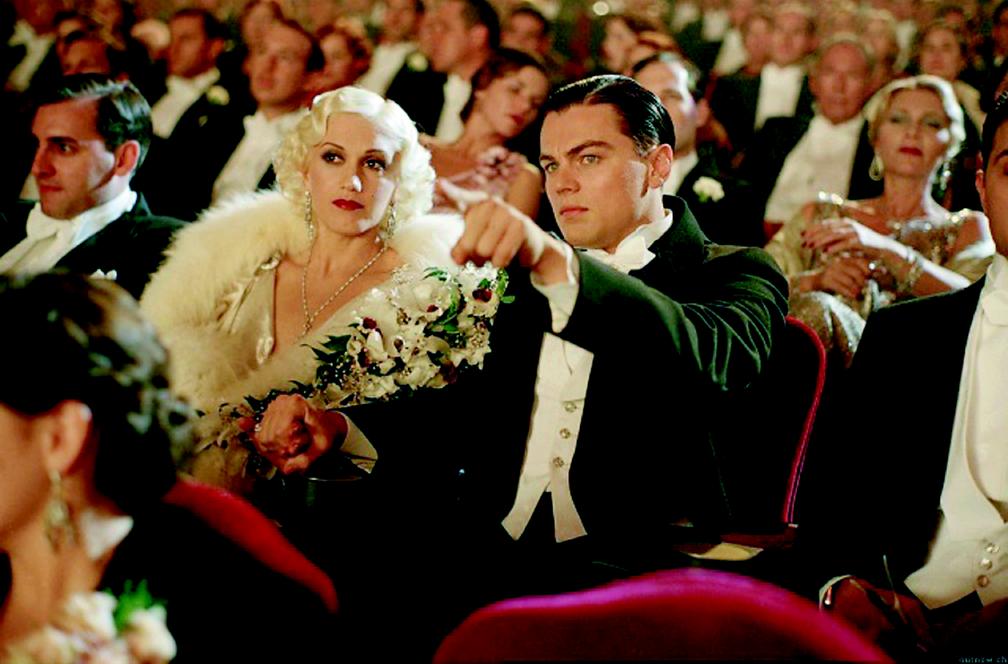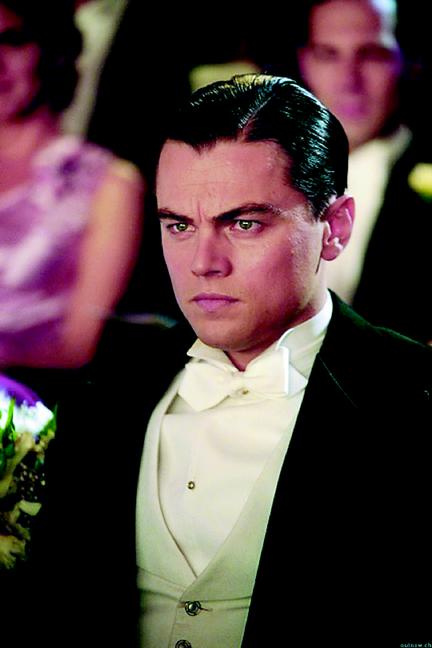Hughes is no stranger to biopics, both realistic and fictional. (Check out Jonathan Demme's Howard and Melvin for a fine example of the latter.) But Scorsese is attracted by more than just the man. In a way, Howard Hughes is the perfect, mad, brilliant, cocky metaphor for Hollywood itself. Hughes came to Hollywood as a young man, fleeing his sheltered childhood in Texas and dragging his family fortune with him. The Aviator picks up Hughes circa 1930 as he is directing his first motion picture, a silent World War I flying ace drama called Hell's Angels. Hughes is shown as an utter perfectionist, who dumps millions of his own dollars into this vanity project. Months over schedule and millions over budget, Hughes insists on shooting his stunning battle sequences over and over. Unsatisfied with 28 cameras, Hughes wants 31. Unhappy with weather conditions, he hires a meteorologist and demands clouds. Finally, after two years of work, the film is finished. Hughes decides to scrap the entire project and reshoot it as a talkie. Astonishingly, Hughes' gamble pays off and Hell's Angels is a huge hit.
This crazy mixture of “damn the torpedoes” risk-taking and nit-picking perfection was the pattern that would rule Hughes' life. It's an attitude I'm sure Scorsese can sympathize with.
Scorsese's “perfectionist” vision of early Hollywood is a stunner. His recreation of the legendary Coconut Grove nightclub alone is a setpiece worthy of the admission price. Scorsese lenses his entire Art Deco-inspired feature in shades of aluminum, reflecting the gleaming silver skins of Hughes' beloved aircraft, the white-hot flare of the California deserts and the cool blue glow of Hollywood's most stunning starlets. At nearly three hours, The Aviator never dips its wings. The film is energetically paced, thrillingly acted and a constant beauty to behold.
Since the film concentrates on Hughes' early days, there's quite a lot of womanizing to get through—from his early frolics with Jean Harlow (a brief cameo by Gwen Stefani) to his longtime relationship with Katharine Hepburn (Cate Blanchett, channeling the star to perfection) to his primal bond with Ava Gardner (a not-quite-glamorous-enough Kate Beckinsale). There are also Hughes' monumental battles in the aviation industry—from besting his business rival (Alec Baldwin) to fighting off a corrupt senator (Alan Alda in some great against-type casting) to charging blindly ahead on his most notorious vanity project, the monstrous “Spruce Goose” seaplane.
An awful lot of this film rests on DiCaprio's shoulders, and he more than bears up under the burden. In fact, DiCaprio delivers his best, most complicated performance since What's Eating Gilbert Grape? It's flat-out mesmerizing to watch DiCaprio work here. He embraces Hughes' every obsessive-compulsive tic, slipping them in slowly at first, then surrendering to them when the going gets tough.
Everyone has an image of the older Howard Hughes, hiding out in his Las Vegas hotel suite, wearing tissue boxes, eating ice cream and watching Ice Station Zebra; but few people have seen everything that led up to that moment. The Aviator captures it in sparkling detail. While it may be impossible to fully understand a man as complicated and confused as Hughes, The Aviator goes a long way toward capturing his odd mix of confidence and insecurity.
Later in the film, Hughes is starting his transformation into the unstable, germ-phobic recluse. Ordered to appear in front of a senate committee to answer charges of wartime profiteering, it's clear that Hughes is doomed. Whether it's strictly accurate or not, I can't say, but the film shows us Hughes' surprising change back to the cocksure, arrogant risk-taker. He straightens himself out, turns on the charisma that bedded half of Hollywood and eats the senate committee for lunch. It's a thrilling scene, one that shows Hughes was at his best when backed against a wall, faced with a challenge or told that something was impossible. Thankfully, Scorsese and DiCaprio have risen to the challenge as well, giving us a biopic that registers as soaring cinematic entertainment and one of the best films of the year.




